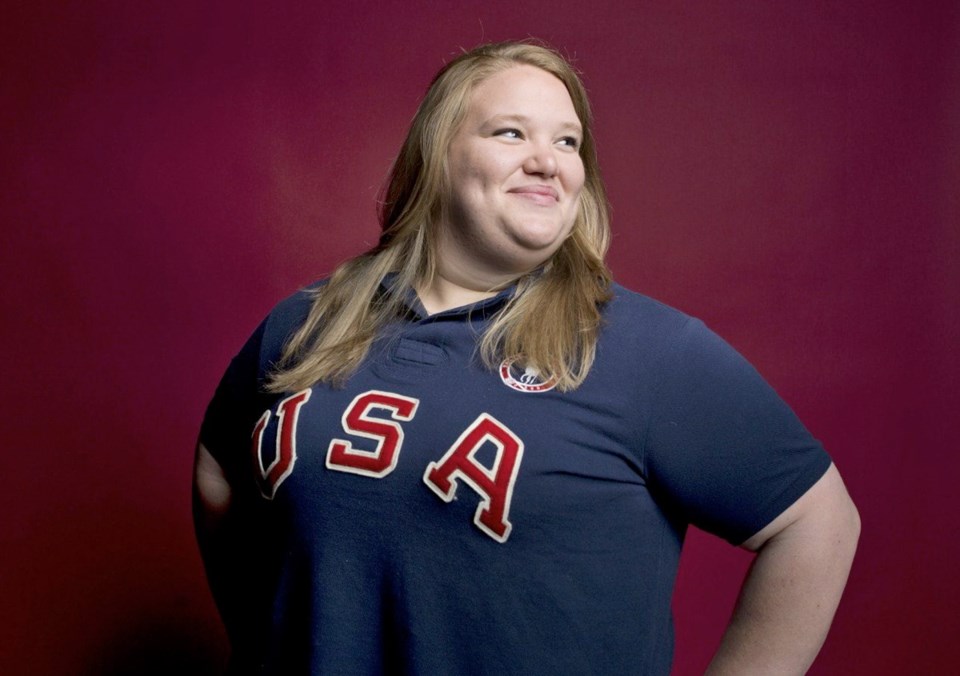It was interesting watching Twitter explode last week over a column written by Tanya Gold in the Telegraph, a British newspaper. She wrote about Nike’s plus-size line of workout gear and a Nike store in London rolling out plus-size mannequins in the store to display the clothing.
Gold wrote that the mannequins’ body type was that of a “pre-diabetic on her way to hip replacement” and explained, with that body type, no woman could even run.
I couldn’t believe what I was reading.
Gold added that a size 12 or 16 mannequin would have been OK, but not any bigger.
In response to the column, a woman posted a photo of herself in a bra and underwear next to a photo of one of the Nike mannequins and wrote that she has run a marathon and half marathon this year and has the same body type of the mannequin.
I’ve been a weightlifter for nearly 12 years and taken part in a variety of competitions. I’ve was introduced to weightlifting through CrossFit, and then moved on to Olympic lifting, powerlifting, kettlebell sport and strongman. I’ve pulled trucks, lifted atlas stones over bars, flipped tires and lifted heavy metal logs over my head.
At the gym on most Saturday mornings, I lift heavy and people are always surprised by the weights I lift. Recently I broke a personal record with a 170-pound push press for three reps. A push press is an overhead lift done while standing at a squat rack. I know my size is always factored in when I surprise people at my lifting. I know that, at face value, no one would ever assume that I could be an athlete, or a good athlete. I have a shelf with medals and trophies at my house that would tell you otherwise.
I am OK that people wouldn’t assume I could be an athlete. My issue is people such as Gold who say, because I am a bigger person, I don’t deserve quality athletic clothes, and any company that provides them is promoting an unhealthy lifestyle.
Nike is just making performance gear that fits bigger bodies, period. They are supplying an under-served market which is not only good for business, it’s inclusive.
Nike launched its plus-size line in 2017 and, as soon as I heard about it, I ordered online. They weren’t cheap, but they were high quality.
In my experience, most plus-size workout gear is designed to look good, but lacks the function and performance that is required when training and competing. I haven’t found another performance clothing brand making plus-size clothing in the size range that Nike offers.
I never thought Nike was promoting obesity, I felt supported by a company filling a real need.
I’ve competed in several regional events and in the provincial championship for Strongman and nationals for kettlebell sport, finishing second in both competitions.
Could I be healthier? Totally. Should I be? Absolutely. There’s no argument there, but do I not deserve to have clothes that fit?
Critics came out in full force when Nike first launched the plus-size line. I posted a video of myself on Twitter completing a 300-pound deadlift for nine repetitions in my Nike tights. The post was a rebuttal of why Nike is making these clothes. Surprisingly, I found a lot of supporters and no Internet trolls with the post.
It’s pretty sad that people are questioning why Nike would even bother making plus-size gear. It’s sad that people are questioning the legitimacy of bigger women in sport. If anything, I think Nike should be applauded for filling a need that other retailers have neglected.
In the Telegraph column, Gold wrote Nike was part of the “fat-acceptance movement” and how it was dangerous and promoting unhealthy people. As far as I am concerned, this topic has nothing to do with body positivity. That’s another column.
Bigger people aren’t oblivious to their size. No one needs to remind me that I am a bigger person or that I could be healthier. Trust me, we know. The problem is shaming people and lobbying companies against making athletic clothing for larger women. It’s sending the message that people like myself don’t deserve the opportunity to have performance athletic gear.
Charla Huber is the director of communications and Indigenous relations for M’akola Housing Society and M’akola Development Services.



